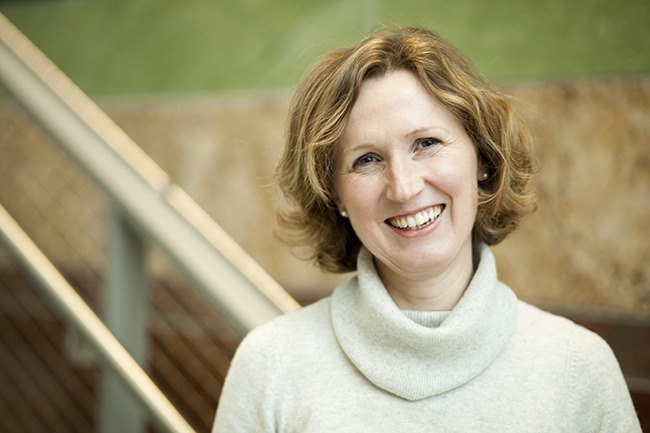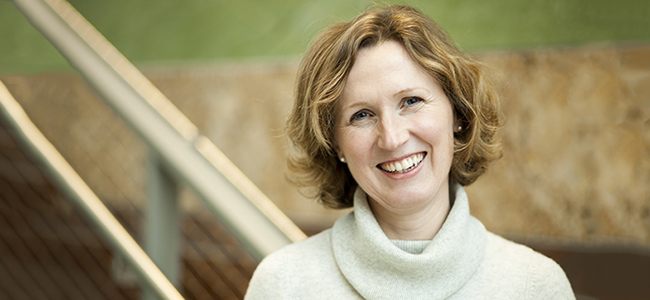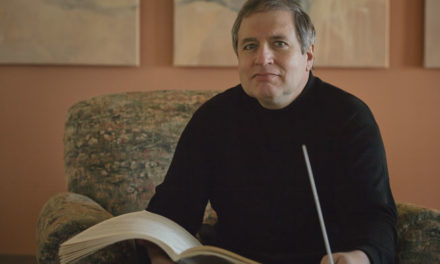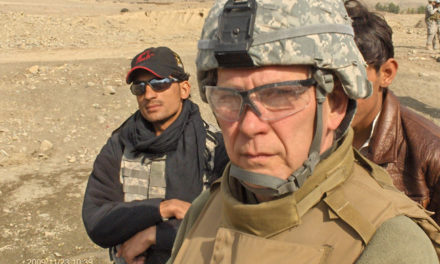
Anke Birkenmaier, director of IU’s Center for Latin American and Caribbean Studies. Photo by Shannon Zahnle
BY CARMEN SIERING
Anke Birkenmaier, who was named director of the Indiana University Center for Latin American and Caribbean Studies in July, laughs when asked how a German national ends up in the United States to study Latin American literature. “It’s not surprising,” says Birkenmaier, who graduated from the University of Tübingen near the Black Forest in Germany. “I came for my doctorate.”
She says Latin American studies was a marginal field in Germany. “And I wanted to study Cuba,” she says. “A lot of Cuban Studies are done in the United States.”
The recent thaw in U.S.–Cuban relations has been a boon for Birkenmaier. She’s part of the initiative called for by IU President Michael A. McRobbie to promote more collaboration between IU and Cuba. IU has maintained a partnership with the University Central “Marta Abreu” of Las Villas in Bloomington’s sister city of Santa Clara, Cuba, since 2004. Now, Birkenmaier says, hopes are high that formal exchange programs will begin between the two institutions.
“IU has a long tradition of working with universities all over the world, especially with countries in transition,” she says. “This seems to be a tradition that goes back to Herman B Wells and the Free University in Berlin.” And while Birkenmaier says it’s too early to say exactly what will come of this new relationship, she can comment on one program. “There will be a study abroad co-directing with another faculty member as early as May 2017,” she says.
Until then, Birkenmaier, an associate professor in the Department of Spanish and Portuguese, has plenty to keep her busy. The center runs a master’s program in Latin American and Caribbean studies, several dual-degree programs, and offers doctoral and undergraduate minors. There’s a commitment to teach less commonly taught languages, specifically Maya, Quechua, and Haitian Creole. Most of all, Birkenmaier says, the center wants to make connections.
“We like to connect to things going on in Latin America, but we also want to connect with people from Latin America, people on campus and in town,” she says. “We try not to be just about research and academic pursuits. We’re also interested in building a community around issues that affect Latinos in Bloomington. We have a long history of working with a community of Latin/Latino Americans in Bloomington on topics and concerns they bring to us, and we want to keep that alive.”
















